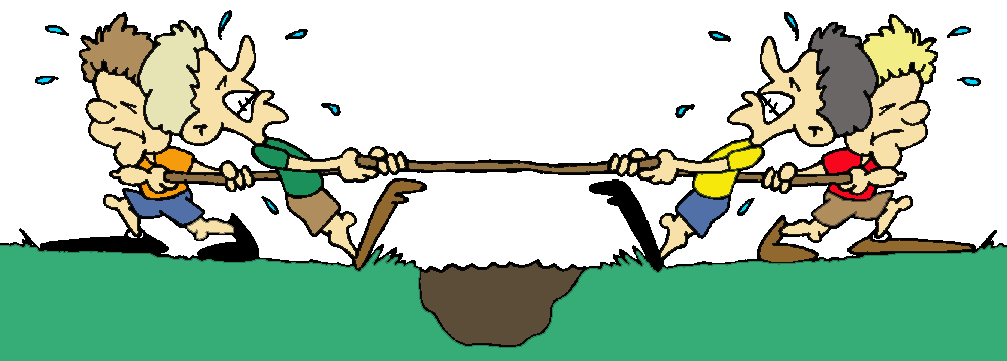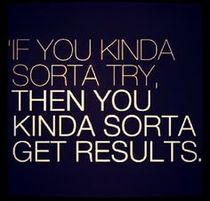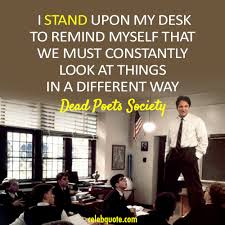"Many of the conversations I have about the future are focused on the past. People say they want to talk about their future, but they are fighting with their past."
- Dan Rockwell, Leadership Freak

I'll be honest with you. 2016 has been a year of ups and downs that have both inspired me and challenged all that I believe to be true. I am dismayed by the way public education and educators are viewed by politicians and wealthy business people, but heartened at the state election results that give us hope again in Kansas. I won't even talk about national and world events and politics which leave me bewildered and shaking my head about the way we talk to and treat each other. It would be easy to keep bringing up the past and dwelling on what might have been or the way it used to be, but there are things we can't change unless we look forward and change our own way of thinking and behaving. I used to remind my players that we can only control what we can control... and that starts with my own beliefs and actions, one day at a time.
I was thrilled with the successes our professional learning organization in Kansas (LFKS) has experienced this year, and that I have been an active part of these giant steps forward. We spent a lot of time wringing our hands and wondering what had happened to our organization before we made some tough decisions, and started down the road with some new ideas and practices. And with hard work, they are beginning to pay off. Leadership Freak blogger Dan Rockwell points out that "hanging onto the past produces doubt and fear" and keeps us from moving forward, changing for the better, and/or forgiving ourselves for past transgressions. The past has it's place in our lives as well as our future. It provides us with experience, lessons of what to do and what not to do, knowledge and skills. But it is not to be lived in, nor used as an excuse for present behavior or situations. We do have to reconcile our past - honoring the valuable, and putting to rest the pain of mistakes and lost opportunities. But the past is in the rear view mirror for a reason. It is from whence we came; a place to visit not to dwell.
While Rockwell's blog is focusing on leadership and team building, one of the questons for consideration that he makes is: "How does the way you are thinking about yourself and others reflect the future you aspire to build?" Our thinking matters.... about our own strengths and limitations, as well as those who we work with and spend our time with each day. Surrounding oneself with people who support us, believe in us, provide meaningful feedback, as well as make us laugh and enjoy life, will improve our outlook and make the future more appealing than the past. As Hans F. Hansen notes, "People inspire you or they drain you." That statement leads to one resolution to make and keep every year - put as much distance as you can between those who hold you back or tear you down, and surround yourself with those who challenge and inspire you.
In my work with educators and even within our church, I often emphasize that there's a big difference between knowing and doing. We often know better. We just often don't DO better. I taught PE for many years, and yet have failed miserably this fall in staying with my exercise plan. You realize that when you're excited that the "active minutes" your Fitbit recorded while shopping at Walmart was the best you've done all week. Along with that lack of self-discipline, I found myself doing more mindless activities that are fun but a waste of time, which led me to complain that I was behind, and wishing I had more time to get things done. My calendar is definitely full with responsibilities to both my family and the organizations with whom I am involved, but is there no time to take care of my health and physical well being? I'm pretty sure the games I play on my phone won't suffer if I take 30 minutes from that activity and get back on the treadmill. So what actions will I take that will inspire me to move forward? I can think of a big one for me: Accountability. I don't necessarily like to be coached, but I do like looking at data. If I schedule it, and then record it, I will have lots of internal motivation to not let those data points go unfilled. And voila! I will see progress. I see lots of people trying new programs, supplements, and other things to improve their lives, or some, like me, just wanting to walk everyday - so I say: Go For It! Pick what works for you and stick to it. It's the lifestyle change that makes the biggest difference, not the shakes or pills that you take. It's a mindset where you choose to take action and think positively, whether prompted by a program you believe in, or the way you look at yourself. The biggest detractor from action is how much we talk about action. So my advice to myself is to stop talking (or writing at this moment) and start DOING!
Again, in my work with educators and within our church, I also facilitate how to effectively create and mangage change so that the goals are successfully implemented. I can definitely say that practicing what I'm preaching would be a great step forward for me at this time. I borrow Simon Sinek's work around beginning with the "WHY" before any change is implemented. Why is it important? Why would I want to do this? Then moving to What will I accomplish if I implement this change? What benefit will occur with this change? And finally, How will I turn these goals into actions? When I find my why, I find my passion, and the transition from knowing to doing becomes more urgent and fulfilling.
This is not a blog about New Year's resolutions, but about getting focused on what matters while letting go of past bad habits and moving from knowing to doing. Don't you worry, I'll take plenty of time to enjoy my free time, write more often, and read those books that were on my list to Santa. But I'm doing one more thing for me. While I'm still taking care of and being there for others, I'm going to take care of myself too. And that tug of war with past bad habits and the things I'd like to achieve will go down as a win for me if I stop talking and start doing. So I'm off to the treadmill to take the road less traveled. You gotta start somewhere!





 RSS Feed
RSS Feed